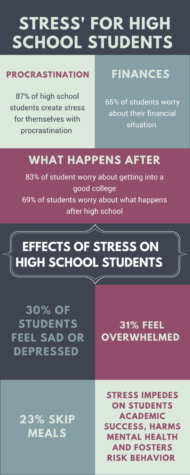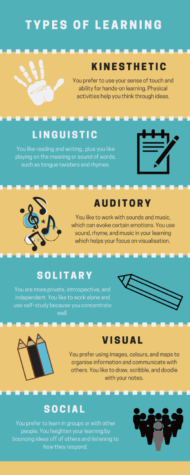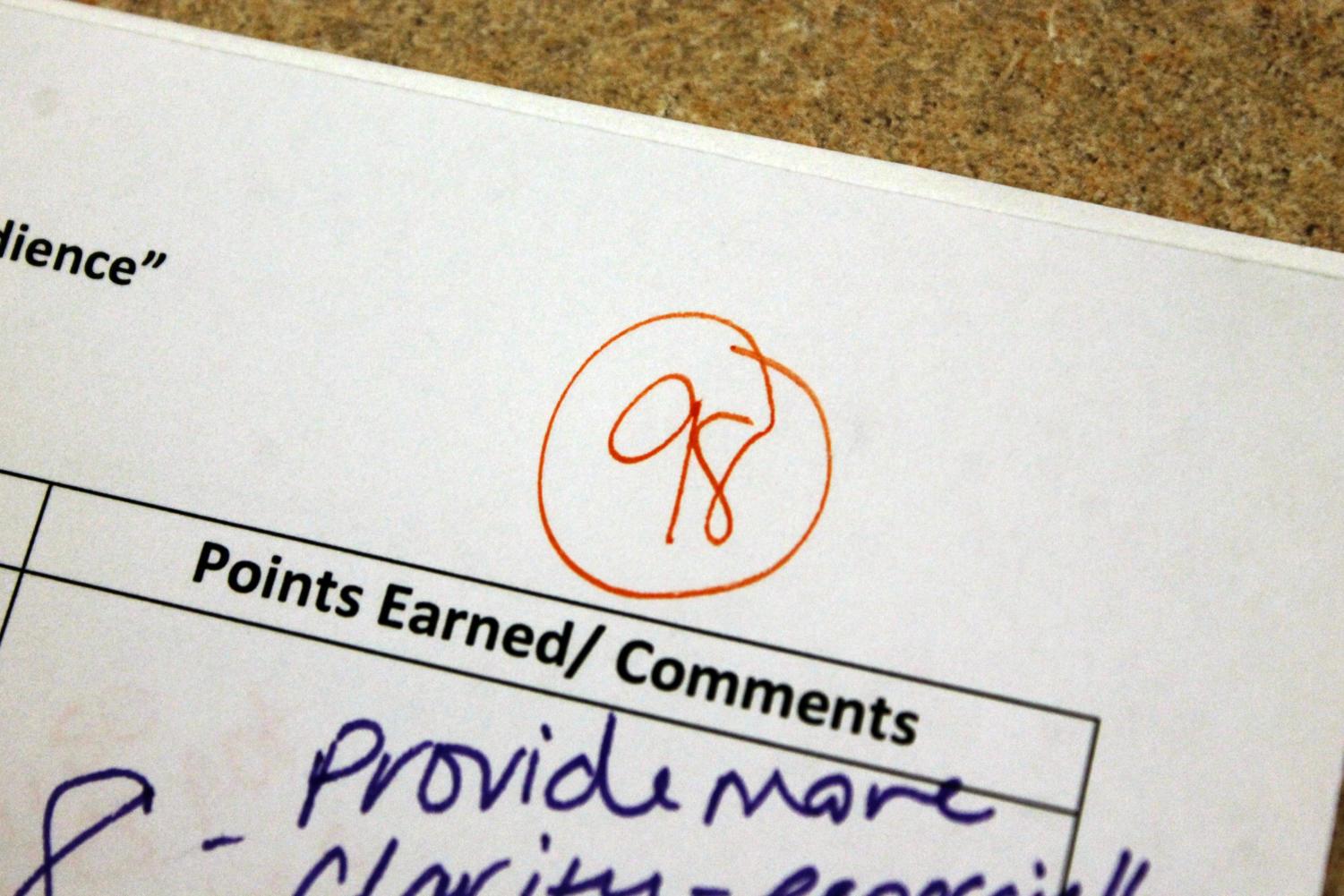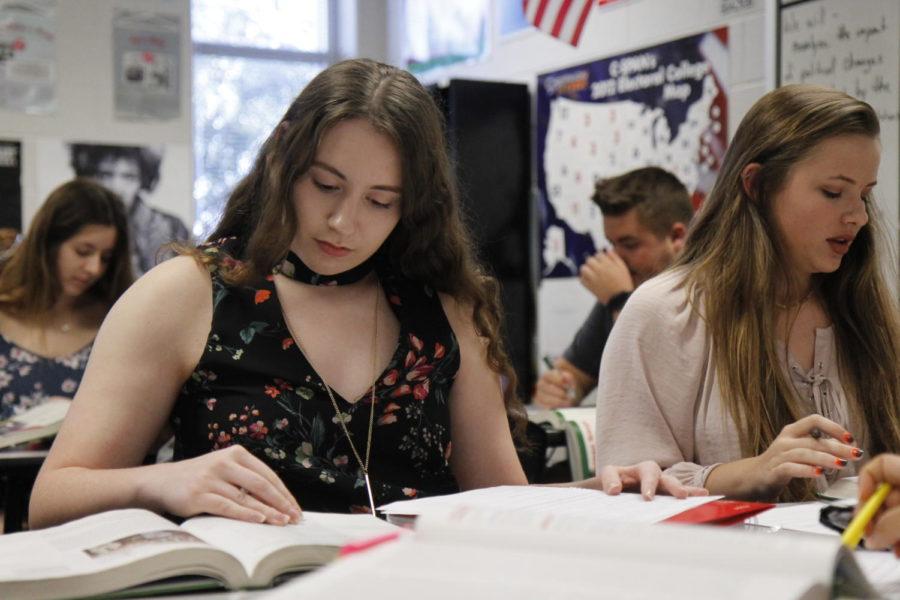Your donation will support the student journalists of Mansfield Legacy High School. Your contribution will allow us to purchase equipment and cover our annual website hosting costs and travel to media workshops.
Grade Game
Students Focused On Grades, Not Learning
April 10, 2019
Senior Katy Thomas flips through note cards in an attempt to cram every last detail into her brain before a test. Thomas has spent her four years at Legacy in a mixture of AP, TCC and on-level classes.
Struggling with test taking, Thomas took hits to her grades with each comprehensive exam she took. The feeling of needing to cram in everything right before a test lead to memorization rather than actual retention and learning. In our society we have created a culture of wanting to be the best and the thought of only being able to achieve happiness in “success”.
“I think we all fall into the trap of comparison when it comes to grades,” Thomas said. “I don’t like how we place our value on the number beside our name. It is really upsetting.”
At the beginning of sophomore year, students have the ability to look at their GPA and class rank to see where they stand among their peers. At the end of first semester during senior year, the class rank freezes and forever stays by your name on your transcript.
“Something I tell my students a lot is that ‘you are not the number.’ We use the number to help classify and for college entrance exams because they cannot accept everyone,” U.S. History teacher Michael Keel said. “Just because I was 14th in my class does not mean I was better than 234 kids who were below me, and that doesn’t mean I was worse than the other 13 kids ahead of me.”
With the competitive nature of the public school system, students experience high levels of chronic stress to the extent that it ironically impedes their academic success, compromises mental health and creates risk behavior. Anxiety in students has increased substantially since 1950 with the effects of stress leading to 30 percent of teens with feelings of sadness and depression, 31 percent who feel overwhelmed and 23 percent saying that they have skipped meals.
“It stresses me out. I don’t like the elitism it brings,” Thomas said. “I can know a lot about a subject and have intense knowledge, but I am not in the top 10 because maybe I am not a test-taker or I have other influences in my life that do not make my grades as high as others. I don’t like how as teenagers, we have created this idea of our worth being associated with the grade beside our name.”
On average students spend 17 hours a week doing outside school work including homework, outside reading and other assignments. Students learn that the best way to study happens through memorization, but no real retention comes with this method.
“Not enough, never enough,“ Coach Keel said. “One of the tough things about AP and TCC is they are advanced college-level classes, and there is no way you can learn everything you need to know in the time we are in class.”
Procrastination affects 87 percent of high school students. It creates stress, but sometimes this stress can motivate students to get their work done under pressure.
”Procrastination is a false sense of being able to accomplish later what you neglected to do when you should have,” Physics and Environmental Science teacher Ms. Michelle Fagan said. “It rarely works in your benefit. There are some students who will not find the energy to address a task until confronted head-on by the deadline, but if something goes wrong they do not have a back-up plan. Mature students (and adults) realize this is always a possibility and plan for it.”
Extracurricular activities such as football, band and debate take up a student’s time and energy. Thomas participates in theater and has been cast in over ten shows. On average, a regular theater practice lasts for three hours after school and during tech week it runs until 10:30 p.m. Fifty-seven percent of students participate in at least one after school activity.
“It is easy for me to put a show or anything we are doing in the theater department above my grades because that is what I am passionate about,” Thomas said. “In theater, a lot of the time, we stay after school for three hours, so I don’t get home until 6:30 p.m., and then I do my homework. I feel like I have a lot less time to do my work, so it sometimes does affect my grade, but I have found that even when I am not doing theater I procrastinate just as much.”
High school students face the epidemic of stress. The most common of the stresses consist of 83 percent of high school students who worry of getting into a good college, 69 percent worry about what they will do with their lives and 65 percent have financial worries.
“I’m very stressed all the time, especially about school work. When I stay up late studying and then I have to wake up earlier to go to school I’m losing sleep, so then I’m not performing the best I could on the quiz or the test for the next day,” Thomas said. “I know I have a problem but I am not going to do anything to fix it.”
Copying a person’s homework, plagiarizing a paper, paying somebody to do homework, taking or getting pictures of a tests or quiz; these are all forms of cheating that students use. Sixty to 70 percent of students in high-school have reported they have cheated and 90 percent of students have admitted they have copied another student’s homework. A pressure gets put on students by parents and teachers to meet a high grade point average so that they can be successful later on in life, but when students are more focused on grades than the material they are supposed to be learning, they are much more likely to cheat. Poor study skills lead to the feeling of needing to cheat because they want to succeed even though they have not put in the work.

“Unfortunately, cheating is rampant. Everything from copying someone’s homework, to taking pictures of quizzes or tests, to copying and plagiarizing from the internet,” Ms.Fagan said. “The only thing you learn when you cheat and don’t get caught is that you can cheat. You never learned the material you were supposed to learn. No one wants to go to a doctor, a lawyer, a hairdresser, a mechanic (pick a career) who cheated their way through school and no one wants to be friends with someone who is a taker — eventually you will wear out your welcome.”
Another study shows 47 percent of teachers are not engaged or actively disengage in their workplace.
“Teachers who are not passionate about teaching — who just show up and check out — they are cheating the kids,” Ms. Fagan said. “Teachers should be facilitators — their job is to help the students learn by providing opportunities and direction — it is the student’s’ job to take advantage of those opportunities and expertise — the teachers can’t learn it for them.”
The first standardized test, the SAT, began 1926 and by 1930 multiple choice exams spread rapidly and received many accusations of encouraging memorization and guessing instead of learning. In 2001 the No Child Left Behind act was put in place by president George W. Bush and reformed standardized testing and expanded it as a means of assessing school performance. Today students from third to 12th grade face standardized testing and teachers are accused of teaching the test over and over using the “drill n’ kill” method, which focuses on teachers giving students repeated worksheets to cause the student to memorize materials. The national salary average of a test developer comes to $60,843 while the national salary for teachers comes to $56,383.
“I think we test too much, especially the core area and the EOC-tested subjects, and by the time students get to the actual thing they are fried,” English teacher Ms. Lisbeth Bennett said. “My 6 year old has heard she will take an important test when she’s in the third grade. Already she is equal parts nervous and excited to pass it. We are sending the wrong message.”
In the state of Texas, students in the top 10 percent of their class get automatically accepted into most public universities – the University of Texas in Austin being an exception to this rule. The creation of this rule came about as a way to create diversity in college so that student of all backgrounds have equal and fair chances to be admitted.
“These are hard-working students who have earned some credit, no one can argue that,” Ms. Bennett said. “However, I think it sends the wrong message to other students that grades are more important than character or mastery of the subject.”
Our current system heavily weights tests. For core classes, the grade weights for a regular classroom are 50 percent for tests, 30 percent for quizzes and 20 percent for daily work. In an AP class, weights consist of 60 percent for tests and 40 percent for daily grades. This grading system creates stress and leads students to focus more on grades than actual retention of knowledge. Research done on medical students shows the positive impact the pass-fail grading system has on mood, stress, test anxiety and group cohesion. The system has drawbacks such as teachers and students not being able to track progress of what the student actually learns. Colleges will not be able to differentiate between high-achieving students and those who are merely getting by . While the grading system helps to evaluate which students need extra help, it also creates the feeling of needing to memorize materials to pass a test.
“I love the idea of ‘Not Yet,” an idea explored by Carol Dweck. I know that through my years of teaching Pre-AP students, I’ve watched so many worry about about grades rather than progress,” English teacher Ms. Sarah Martin said. “I think if we focus on progress rather than perfection, we will see some great things happen.”
The ‘Not Yet’ tactic makes it to where students do not get a failing grade but instead the mark of not yet. This ensures that students do not feel like a failure and instead gives them a road for improvement. Students begin to grasp the concept that learning content is important, not just passing.
The design of the school system today was based off of an industrial age instead of the knowledge-based one we live in now. Businessmen, military generals and former governors were appointed to run the public school system rather than educators. The school system reformed in 2002 with No Child Left Behind act with the purpose to hold schools accountable for the outcome of students. After this act, the U.S. slipped from 18th in the world in math to 31st place in 2009, with a similar drop in science and no change in reading. Some school have worked to change the way they educate their kids such as a high school in Chicago that implemented the “Not Yet” grading system.
“It’s time for education reform. One of the problems with our school system is that we run schools like a business and schools are not a business,” Ms. Bennett said. “For us, I believe the problem is that we have people making decisions for education that have no business doing so: they have no experience in the classroom, no experience designing curriculum, no certifications. So what makes them think they know what they’re doing?”
The value of education lessened by students’ focus on getting good grades leads to students not fully mastering content. Students with lower grades tend to have lower self esteem because of the pressure put on the number. Students place so much emphasis on this number that they let it define them and the goal of school becomes getting the highest grades – not learning.
“Learning is what is important,” Keel said. “Not the number beside a student’s name.”
Tricks of the Top Ten Percent
Students Reveal Their Successful Study Habits
The top ten percent – the people students envy. Intelligent, confident and academically successful. They’ve got a bright future ahead of them, colleges want them, and parents wish they were their kids. They may be highly intelligent, but does it come naturally? Or do they spend hours each evening, studying to perfect their knowledge on each subject?
Junior Kaitlin Nguyen takes six Advanced Placement courses each semester plus debate. She attributes her academic success to one key thing: a planner. Organization may be the success for one student, but spending hours of studying each afternoon may be another student’s success.
“Staying organized,” Nguyen said. “If I didn’t have my planner I wouldn’t know when tests or quizzes were, or when things are due, because there’s a lot happening, especially if you’re taking AP courses.”
Study methods vary from student to student. Major study habits include time management, setting time aside to complete assignments ahead of time, taking notes in class to look over at home and asking questions in class to further the conversation. Finding a student’s style of learning can help them not only in the classroom, but outside of school when retaining information.
Margaret Vo, ranked in the top ten of the senior class, has her own struggles when it comes to being able to study. Students who often excel in their academics don’t always lock themselves away in their room, but hide out in a teacher’s room to better understand the topic they couldn’t fully grasp in class.
“I mostly learn through tutoring,” Vo said. “I struggle with learning things on my own. If you see me after school, you’ll usually see me in a teacher’s classroom asking a bunch of questions.”
Listening to music, silent rooms, physical, auditory and kinesthetic learning show some of the few ways high-ranking students help them focus better. Each student has their own preferred method of studying, and teachers want to aid students when they need help finding what works best for them.
“I enjoy talking,” Vo said. “So, I talk through it to myself. I’m not hands-on, but I like to interact with text, so if it’s a physical copy of a textbook, I like to highlight through that. I like to have physical flash cards instead of quizlet.”

Students who work hard in their studies often find themselves rewarded with their position in the top 10% ranking of their class. Senior Lindsey Blakely, for example, uses her office aide block to catch up on homework and study for core classes. While Blakely recognizes there are different ways to go about it, she believes some hard work must get done to feel sufficiently prepared.
“I think there are people who are intelligent, but they still have to learn some things,” Blakely said. “If they don’t start studying, it’s going to really hurt them when they go to college and they don’t know all of the materials. It’s just going to hurt them in the long run.”
Efficient study habits are not just helpful tools for high school – they can also prepare students for the rigorous coursework in college. The equivalent of college courses in a high school setting are noted as Advanced Placement courses. These classes often fill with students trying to enhance their high school academic portfolio or challenge themselves. AP courses often involve a textbook or two and require various amounts of at-home reading, causing some students to drop the course. Because of the difficulty of the classes, most AP teachers try to equip their students with the necessary information required to be successful in their classroom.
APUSH teacher Michael Keel has mixed feelings on advanced students and their study habits, but he, too, has tips for students to be successful in his classroom.
“I would like them to read prior to lecture,” Keel said. “I would like them to take notes while reading, and then when they come in, they can just make additions to their notes and it’s not the first time they’ve heard it.”
However, to get prepared for college, Keel believes variably rigorous Advanced Placement classes require students to engage more, which then teaches them valuable study skills to transition to college. Although Keel recognizes that some students who take AP courses for the first time find the classes challenging, struggle should not be seen as a ‘bad word,’ but rather a skill to be built upon.
“I was in a meeting yesterday,” Keel said. “They said that even students who make a one on the AP test are more likely to graduate from college in four years than other students who never took it.”
Younger groups such as the sophomore class have time to set their standards high to achieve the academic success by being able to set effective study habits early on. Sophomore Isabella Estes, when transitioning into high school, already had her standards set high, found her best study habits and set a routine.
“I knew I wanted to do well,” Estes said, “But I didn’t really have an idea of how much work it would take.”
Regardless of how students do it, being prepared and academically successful means a lot to these students.
“I don’t want to be defined by a number,” Blakely said, “But it’s nice to know that my hard work does pay off in a certain way.”

